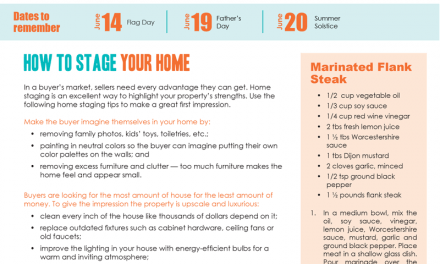To become and remain successful, real estate professionals need to anticipate and plan for future sales numbers. One tool helpful for projecting into the future is the consumer sentiment index, as it tracks both where we have been and optimism (or, more recently, pessimism) about where we are headed.
In 2020, California’s index for overall perceptions of future economic conditions was at its lowest index level since Chapman University began tracking the figure in 2003.
The consumer sentiment index was at 65.9 in the fourth quarter (Q4) of 2020, down dramatically from a year earlier when it was 96.9. For reference, an index number of 100 means 50% of surveyed consumers provided a positive response when asked about future economic conditions. This index has remained near its present low levels since Q2 2020.
Breaking this general consumer sentiment survey down further, Chapman University researchers also ask consumers about their plans for big ticket item purchases, namely their likelihood of purchasing a new car. While the general consumer sentiment index has remained mostly level (at historic lows) throughout 2020, the index for the likelihood to purchase a car has declined steadily each quarter since Q1 2020.
Extending this consumer outlook on auto purchases into the housing market, it may be safe to assume consumers are becoming less sure of their willingness or ability to make large, financially constraining purchases.
How consumer sentiment translates into home sales
Keep in mind, future expectations are unreliable as they mostly mirror past experiences. They are just consumer projections, not forecasts of likely consumer purchases, which consider multiple data points from different sectors, applying a deep understanding of how these factors have interacted historically.
Further, all survey responses are based on events that have already occurred — as experienced by the person interviewed. As more facts and information become available, reported and absorbed, buyers do change their opinions about the future. Homebuyer sentiment thus has a lag time of several months before any buyer call to action may actually be turned into a sale by agents.
So, what do the latest consumer sentiment numbers tell us about future home sales?
As expectations for future economic conditions remain low and anticipated big-ticket purchases continue to decline, the prospects for home sales in 2021 remain dim.
Add this information to other known factors at the start of 2021, including:
- historically-low multiple listing service (MLS) inventory;
- the extended recovery from 2020’s job losses, half of which are still missing;
- rising 90+ day mortgage delinquencies, encompassing 4.8% of the mortgaged population of homeowners whose only saving grace is the foreclosure moratorium; and
- the impending expiration to the foreclosure moratorium later this year, which will cause a wave of distressed sales to hit the market.
When the foreclosure moratorium ends and distressed sales rapidly expand the inventory of homes for sale, homebuyers will collectively get cold feet, choosing instead to wait out the rush of home prices to the bottom.
The one big factor that has the power to push the housing market out of its current path is government intervention, in the form of stimulus. The huge amounts of money currently being injected into the economy will stave off further economic losses for a few months, at best, perhaps long enough to get the pandemic under control. But unless the stimulus involves job creation — or is significant enough to last until jobs are created organically — this boost is only a delay of the inevitable fall-out from the millions of job losses experienced in 2020 that linger today.
Absent more stimulus intervention, expect to see home sales volume and prices fall later in 2021 with the expiration of the foreclosure moratorium. Consumers are already cautious about their finances and signs of distressed sales in the market will be all it takes for homebuyers to head for the hills.
Related article:
















You write quite well, and the content is really interesting. I’ll provide you a link to my website.
We have a world wide economy that has been supported by an aggresive consumer society. The current virus has put us back at least 10-20 yrs and we are trying to live in this new scenerio. Consumers are cautious about spending and this affects both producers and consumers. We are in a period of economic stagnation (inflatoin and recession at the same time), and the best way to protect our financial condition is to take a position in “hard assets” that allows for value protection. (Hard assets such as real estate, oil, commodities, etc.,). The Dollar is slowiy declining in value simply because of the US credit deterioration created by our tremendous debt ($4++ trillion after current stimulus). I would suggest that people consider real estate to protect their future.